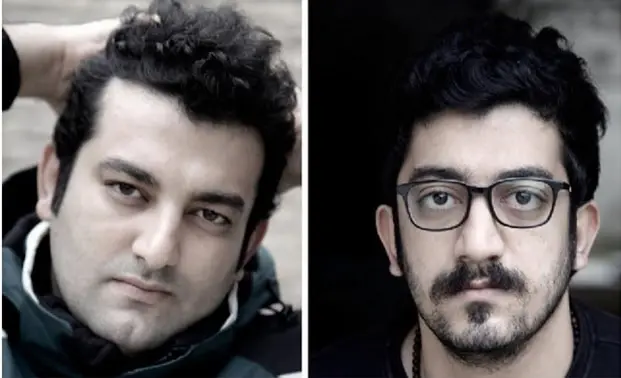The following essay is taken from the third issue of PEN America’s translation magazine, Glossolalia, titled, We Agree on Nothing: New Writing from China. This piece, written by Chinese poet, author, and educator Wang Xiaoni, was translated for the magazine by Eleanor Goodman. To read the full issue, purchase a print or digital edition.
TRANSLATOR’S NOTE
Although best known for her poetry, Wang Xiaoni is also a trenchant essayist and fiction writer, and she frequently approaches topics that others avoid for good reason. Her essay “A Protest March” was cut from her book Class Notes 2 because it was too politically sensitive. Ironically, the protest described in the piece is not an anti-government march, or one of the many popular disputes over a local land-grab, the construction of a polluting factory, or the sudden relocation of a power plant. Rather, Wang describes a nationalistic anti-Japanese gathering of students who are there to voice the Chinese Communist Party’s line. What makes the piece politically sensitive is that Wang does not simply accept that line unquestioningly. She asks whether the students really understand the issues at hand; she wonders whether such displays are appropriate at all. She brings in the question of history, which far from being a set story, can be either manipulated or ignored. At the end, she poses the provocative question of what a “radical” really is—implying that following the party line can also be a demonstration of radicalism. All of this amounts to a potent though subtle challenge of the ‘received wisdom’ that is all but obligatory in today’s China.
***
When I returned to campus at the end of September, my students told me that only five students at the college had gone out to join the protests, and all of them were from their class—how embarrassing!
A few days later, I ran into one of the protesters’ classmates. “It’s strange how some people get agitated so easily,” she said.
I’d heard that the five students who marched all lived in the same dorm. One shouldn’t draw hasty conclusions about other people; it’s better to listen to what they say.
I heard the following story from one of the participants:
When they heard they could go march to express their patriotism, five students who lived together were very excited, and they encouraged other dormmates to join them. (Some students agreed, but didn’t show up.) The five pooled their money and went to a corner print shop to order a red cloth banner with yellow characters that proclaimed: “The Diaoyu Islands Belong To Us!” They wanted a six-meter-long banner, for which the shop owner quoted a price of 70 yuan. They told him it was for a patriotic march. The shopkeeper was inspired, and said that because it was a patriotic event, he would go too. He reduced the price to 50 yuan and threw in an extra meter of cloth for free. The five carried the seven-meter-long banner back to campus.
As it turned out, the ranks of marchers were so thin that seven meters was too long, and they had to cut a portion off. To notify more classmates about the event, that night they handwrote announcements and waited until after midnight to post them around campus. But who would be out so late to see the signs? In the end, they decided not to post them.
The next morning as they left campus, some people urged them to wait for the rest of the marchers. The five went on their own anyway, while teachers and other students reminded them not to engage in extreme behavior. I heard later that most of the other students organized on-campus events.
When they hit the streets, the five knew they weren’t just out window-shopping. Excited, they pulled out the placards they had prepared in advance. One featured a slogan that wasn’t very good, and no one wanted it. Fortunately, one of the students had come empty-handed, so they gave it to him. He took one look and gave it back. In the end, somebody picked it up and carried it anyway, to the laughter of the others. It was pretty eye-catching, and some people even snapped photos. (My student didn’t tell me what it said, and I didn’t ask.)
Everyone was peaceful, just shouting slogans and walking along. But my student did worry that if someone in the crowd shouted, “That one in front is Japanese!” not everyone would keep in control, and it was possible someone might turn violent. There were a few extremist slogans—“Give me an atomic bomb!” and “Fight all the way to Tokyo”—and he said he didn’t agree with such radical expressions. They walked for quite a distance and reminded each other along the way to stay calm. When they got tired, they returned to campus. They hadn’t imagined they would face ridicule from their classmates and incomprehension from some of their professors. “It’s good you had the experience,” one professor said, “so long as you’ve come back safe and sound.” In his heart, the student corrected the professor: We weren’t there for the experience. We were there to express ourselves.
I asked: “What did you most want to express?”
“Our country is too weak,” he said. “People in other countries aren’t getting killed. We’re the ones who are always getting picked on. It’s Chinese who always end up dead. I think some people just died along the Mekong River. Our people are too divided. We can’t just sit and bide our time; we need to act together. When we get picked on, we should hit back. Right when we have all these internal problems, the Japanese intervene and take advantage of it. The Diaoyu Islands are clearly ours, but the Japanese are occupying them.
I asked: “If there are other events like the one that just happened, will you join in?”
He said: “No.”
I said: “If it were me, I’d want to do some research, check the history for evidence, and not just take to the streets.”
“There’s nothing to check out,” he said. “There’s lots of proof that the islands are ours.”
I asked: “You’ve researched it?”
“I heard one of the professors here talk about it. He’s researched it, and he said they’re our islands. He supports us.”
I had the feeling this student’s accusations of being “picked on” and “divided” had come from this professor. The student was normally mild-tempered, but on that day I could sense his stubbornness and persistence, his face red with agitation. But I trusted that his love for his country and countrymen was genuine. When we changed the subject, he slowly calmed down. We talked about his decision to try to test into graduate school; he shook his head, saying, “I should be approaching it with the same level of intensity as when I tested into college, but for some reason I haven’t been able to do that.”
After that conversation, I understood the five young men better. They wanted to express their patriotism, they longed for others to join together, and they needed an opportunity for total release, even if shouting themselves hoarse invited ridicule. Had I not heard my student’s testimony, I wouldn’t have really understood the situation. They were young, their hearts were impulsive, and they needed a chance to express their feelings, a chance to prove the power of their own existence.
Someone on Sina Weibo put it this way: @ClassmateYan: But, a lot of people have no way to get ahead, except by studying.
Now there was a new way to get somewhere: You could march along the streets shouting. This kind of passion can be invoked effortlessly. Our culture has long recognized the grassroots hero, like the righteous outlaws of The Water Margin, the medieval knights-errant, or young triad members. Some people need the purifying force of total unity in order to open and solidify themselves within the strength of many, or to foster the righteous indignation of a hero complex. In a more normal society, a young person would have other avenues to express and release the fervor of youth.
In September 2012, they chose to take to the streets, band together, and shout as much as they liked. It fulfilled an inner need for which other people abandoned rationality, or longed for the pleasure of bloodying a knife. Perhaps it was also a way to strengthen their own feeling of really being there.
There have been many such events in the recent past. I’ve read a dozen different accounts of the Boxer Rebellion, mostly assembled from missionaries’ letters, scholarly research and analysis, and fragments of local annals. None included narratives written by Boxers themselves, or notes from their interrogations after the movement was suppressed. I’m fascinated by this tragic community, yet I haven’t found a clear and truthful account of what happened. Why did these peasants so readily leave the homes of their ancestors, giving up their land and crops to gather together in revolt? What motivated them, aside from the superstitions that arise in years of famine and a desire for revenge against outsiders? Maybe, like the protesters who vandalized Japanese cars on the street in 2012, they were saying: “Our lives are pointless.” Perhaps they were the powerless ones—those peasants who thought their incantations would stop blades and bullets. They managed to send waves across the country, but the consequences included beheading, prison, flight, or exile.
Another student had a different perspective on what happened:
Today as I rode the bus past Pearl Square, I saw a lot of people walking around, with police cars leading the way. From the bus, it all seemed pretty stable, but there were some streets that were blocked off. I was afraid that the things I’d seen in photos would happen again right there. Now I’ve started to understand why in class you used the expression “disorganized and undisciplined” to describe the events of that “sensitive” year. You said something like that, I can’t quite remember now. At the time, I couldn’t accept it; I thought that what the students had done was absolutely justified. But over the past two days, I feel like I get it. People revere Václav Havel because his revolution was a “velvet” one. To test your strength against a demon, you have to become a demon yourself, and that doesn’t seem right. Gustave le Bon’s The Crowd has really influenced me. I’m sure that at first a lot of people just go to see the excitement, just like Lu Xun’s “onlookers.” But because those onlookers harbor so much resentment themselves, once they’re stirred up, it’s hard not to join in. A crowd is a really strange thing. I even think that whoever has the power to provoke has the keys to tyranny.
Last night when I went back to my dorm, a friend asked me: You didn’t go to the demonstration? I said: Why would I want to go? She said: Because you’re so radical, shouldn’t you go …? And by ‘radical,’ she meant a person who questions this society …
Wang Xiaoni is a well-known Chinese poet, author, and educator. Though made famous initially by her poetry, Wang Xiaoni has also authored collections of short stories as well as nonfiction anecdotes and academic articles on higher education in China. Her two-volume collection Class Notes, from which these essays are excerpted, exhibits her literary voice at its best—sensitive and compassionate, yet incisive and utterly fearless. Wang’s collection of poems, Something Crosses My Mind, translated by Eleanor Goodman, won the Lucian Stryk Prize for Translation and was shortlisted for the Griffin Poetry Prize.
Eleanor Goodman is the author of the poetry collection Nine Dragon Island (2016), and the translator of Something Crosses My Mind: Selected Poems of Wang Xiaoni (2014), Iron Moon: An Anthology of Chinese Workers Poetry (2017), and Days When I Hide My Corpse in a Cardboard Box: Selected Poems of Natalia Chan (2017).











